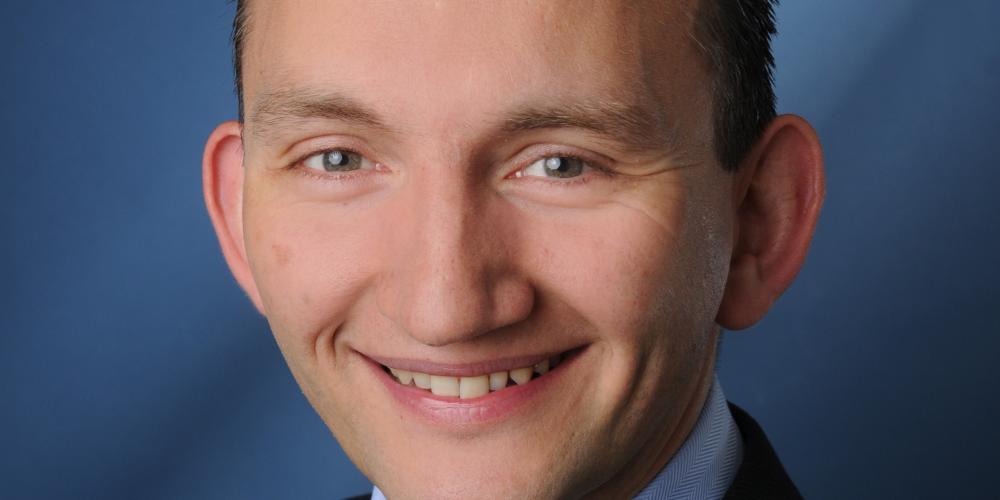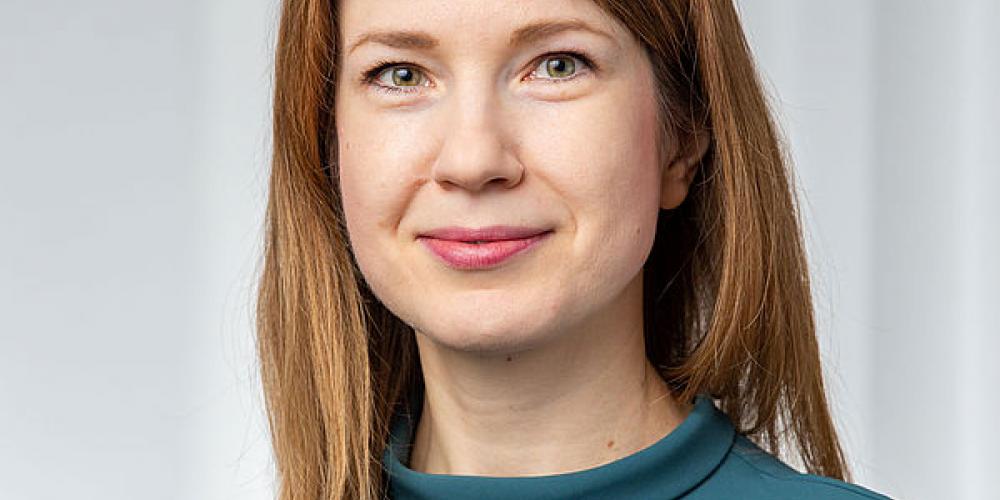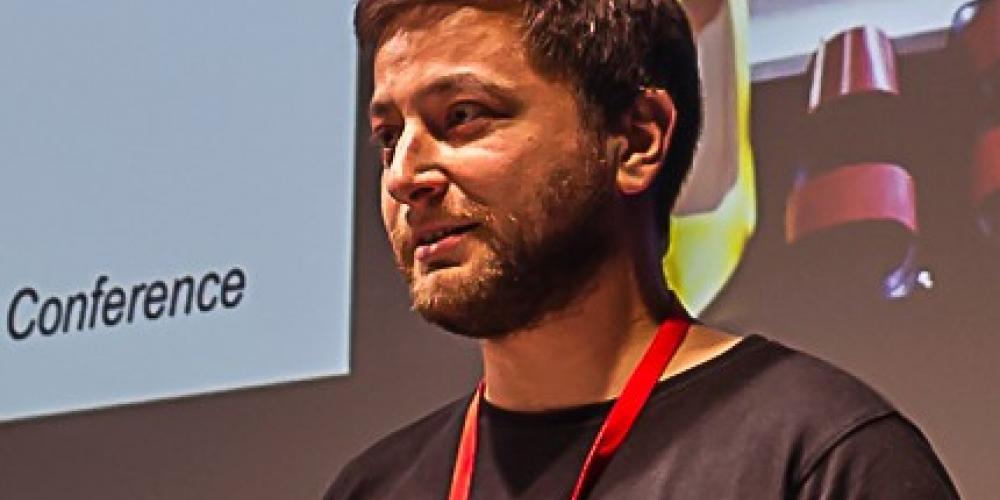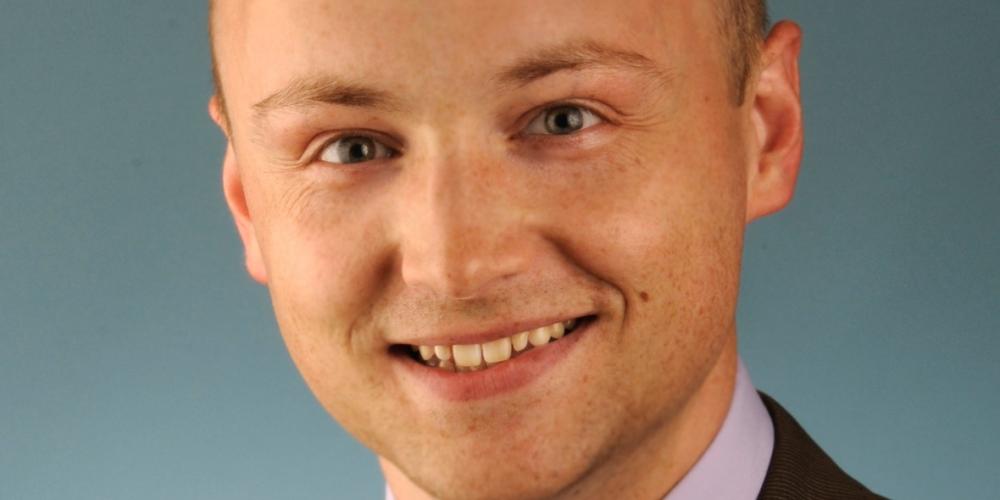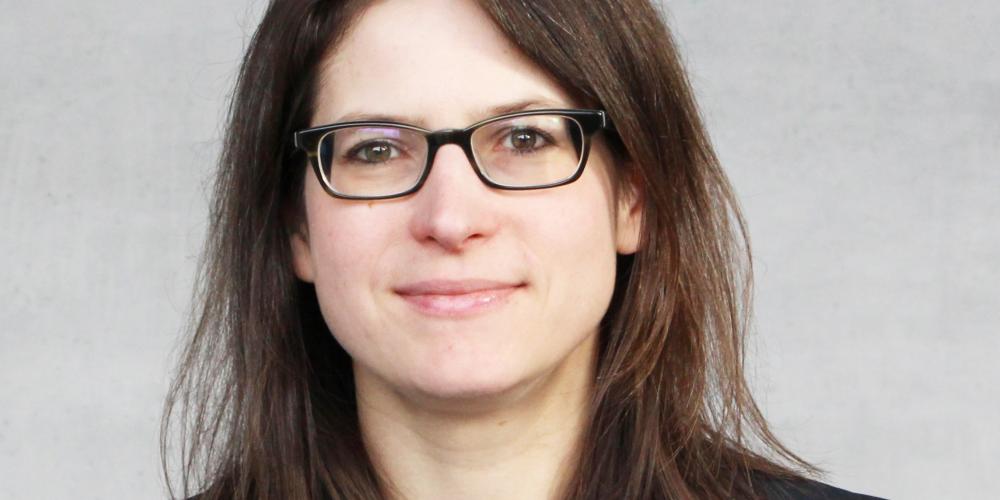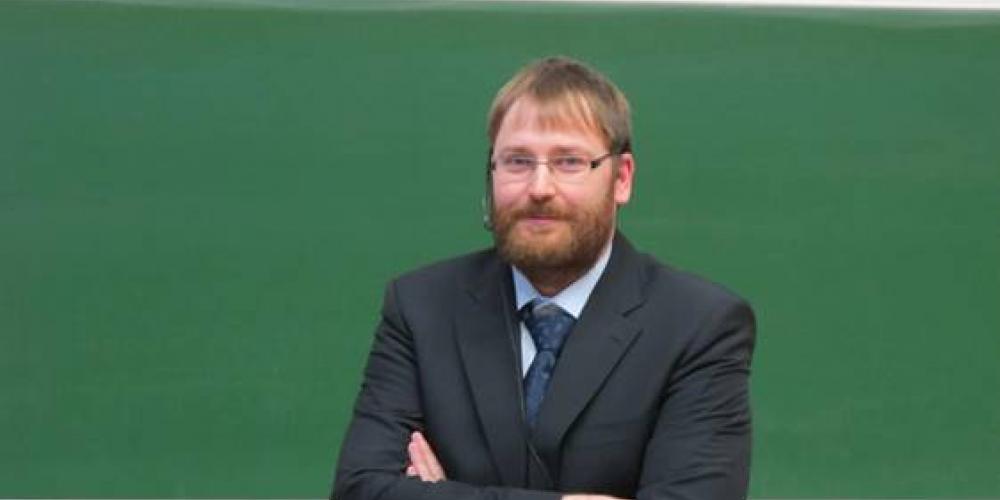Big Data & Data Management
Siemens CT
Professor Greven's expertise is particularly in statistics, data science, statistical learning, machine learning, statistical modeling, statistical inference, biostatistics, and their applications in various fields (economics, social sciences, medicine, epidemiology, engineering, linguistics, etc.). She is also well-versed in functional data analysis and statistics for object data (curves, images, shapes, etc.).
- 2 projects on functional data analysis for sensor data with Siemens CT
leading company in the field of microcredit
WebTrekk and Uebermetrics
Professor Lessmann's research focuses on machine learning and artificial intelligence (MLAI) methodologies and their use cases in managerial decision support. Areas of interest include but are not limited to explainable AI, causal/interpretable machine learning, natural language processing, predictive analytics and time series forecasting.
He is specialized in MLAI applications in the broad scope of marketing and risk analytics. He is also actively involved in knowledge transfer, professional education and consulting projects with industry partners ranging from start-ups to global players and non-profit organizations.
- Prototyping, evaluation, and benchmarking of ML/AI-based prediction and decision models
- Development of PD, LGD, and EAD forecasting models
- Processing of textual data for knowledge extraction
- Assessment of the information value of commercially available data sources (e.g., credit bureau data) for predictive modeling
- Estimation of personalized, individual-level treatment effects
- Professional education in ML/AI, data science and business analytics
FinTech - Based on concepts of Bayesian statistics and semi-supervised machine learning, Professor Lessmann and his team have developed a system to solve the problem of inference rejection in the lending industry. Their solutions provide significantly better risk scorecards and make it easier for lenders to predict the predictive power of a scorecard (e.g., the PD) in operation. The project was conducted with a leader in the microcredit space.
E-commerce - Together with WebTrekk and Uebermetrics, Lessmanns working group is developing an AI-driven web controlling system that examines web metric time series (page views, visits, bounce rates, checkouts, sales, etc.) and identifies the causes of observed patterns (e.g., anomalies). To this end, their system integrates deep causal detection algorithms based on reinforced learning and xAI methods. To extend the scope of their root cause explanations, they also monitor various social media streams and use advanced NLP algorithms for event detection. The unique combination of these AI concepts provides web controllers and store managers with advanced insights into their business operations.
Digital marketing - Lessman and his team have developed advanced causal machine learning models for real-time targeting of e-coupons and other digital marketing stimuli. Their optimal (i.e., profit-maximizing) methodology includes both single and multiple treatment scenarios and leverages traditional supervised learning algorithms to enable cost-effective deployment.
Professor Lessmann has taught a number of professional education courses in subject areas such as credit risk modeling, fraud detection, advanced analytics, and machine learning, to name a few. Some of these courses are offered as part of the SAS Business Knowledge Series, but are also available on the R and Python platforms. Requests for professional development in the areas of his expertise are welcome.
- funding by various bodies including DFG, DAAD, IBB (e.g. Transfer Bonus, ProFIT)
world-leading energy group
Professor Danilov is engaged in empirical human resource management research, as well as the identification of causal relationships of the effect of human resource management tools on employee motivation and productivity. She also conducts research in organizational and human resource economics, in the field of empirical human resource management (HRM), and in the course of this she works with Big Data and People Analytics using machine learning.
- randomized studies (A/B tests) on incentive setting
- work design and employee motivation
- analysis of data (accounting, personnel, etc.)
- "Delegation of decision making and productivity and employee satisfaction" at a world-leading energy company.
Prof. Dr. Alan Akbik conducts research in the field of machine learning (ML) and natural language processing (NLP). His goal is to enable machines to capture, understand, and use natural language like a human.
To this end, he has developed one of the world's leading deep learning frameworks for NLP, which is already being used in over 1,000 research and industrial projects.
Consulting in:
- Deep Learning
- Natural Language Processing (NLP)
- Machine Learning (ML)
- 3 Patents at IBM Research
- Zalando Outstanding Achievement Award
workshop on the analysis of Twitter data for Stiftung Wissenschaft und Politik (SWP)
Professor Jäschke and his team develop and optimize methods in the areas of Big Data and Machine Learning, especially in the aplication fields of Natural Language Processing, Social Bookmarking and Recommendation Systems. This includes the Collection (e.g. through focussed Crawling), Compilation, Annotation (e.g. by means of Crowdsourcing) and Curation of suitable records (data sets).
Further, it includes the Adaptation and Improvement of appropriate Algorythms (e.g. Named Entity Recognition, Classification, Clustering, Information Extraction, etc.) culminating in the development of web-based analysis platforms.
- Hadoop-Cluster
- GPU calculator
- diverse datasets
Accor Hotels Germany
SHS VIVEON realisation of training for interviewers
International executive headhunting company: development of customised personality test
Prof. Ziegler's expertise and that of his team lies in the field of psychological diagnostics and deals with all topics of personnel diagnostics in the HR life cycle. They focus on personality, intelligence and situational awareness. Ziegler and his team develop solutions to measure these in relation to requirements and to use them for performance or learning prediction. Therefore they use the full range of qualitative (e.g. interviews) and quantitative methods (e.g. tests, questionnaires, machine learning).
Prof. Ziegler has already carried out several successful projects with well-known companies in this area, involving the creation of competency models, employee surveys, annual appraisals or job aptitude diagnostics. Prof. Ziegler's working group also trains individuals or teams on topics of personnel diagnostics (e.g. assessment centers or interviews). In addition, Prof. Ziegler develops customized diagnostic processes or evaluates them.
- PC lab with 10 workstations and various performance and personality tests
- Online surveys
- Data analysis
- Consulting
- Trainings - wide range of topics
-
Competence model development - Prof. Ziegler and his team have developed competence models for different professions for various clients and made them measurable
-
Accor Hotellerie Deutschland GmbH: Development of competence models
-
SHS VIVEON AG: Implementation of interviewer trainings
-
International headhunting company for executives: Development of a customized personality test
-
Evaluation and optimization - In these projects Prof. Ziegler looks at existing personnel processes, evaluates their quality from a psychological point of view and develops optimizations.
Prof. Winter’s research is focused on animal behaviour, especially cognitive performance, e.g. learning ability, memory and their neurobiological foundation for foraging. He carries out behavioural assessments for mice and rats, mostly for preclinical research, to investigate decision-making processes in animals. Lab space is available, inter alia at the Berlin Mouse Clinic for Neurology and Psychiatry (BMC), one of the leading diagnostic institutions within the NeuroCure Cluster of Excellence. Prof. Winter and his team also advise on experimental design and develop automated equipment and systems for behavioural studies on rodents for external laboratories. Another area of his expertise is virtual reality for humans. Here Prof. Winter focuses on the development of a compact, mobile, and immersive virtual reality environment for a wide range of uses.
Behavioural analysis:
- Computer controlled sensor and actuator systems for manipulation and measuring of behaviour
- Modular software system for automated measuring of behaviour
- RFID technology
Virtual reality:
- Immersive 3D-virtual reality system with closed monitoring (octagon)
- Software for rapid implementation of specific VR-applications and interaction scenarios
- Planning and development of a system for automated diagnostics of parameters for motor skills after clinical surgery for a large international pharmaceutical group. 24h recording and measurement as operator independent system.
IT system house
IT product manufacturer
international pharmaceutical company
medium-sized biotechnology company
The research of Prof. Leser and his group is focused on all aspects of management, integration and analysis of heterogeneous, large and distributed data sets including natural language texts (text-mining and information extraction). This encompasses subjects such as data warehouses and ETL, graph databases, deep web and semantic web, machine learning, similarity search, scientific workflows, statistical methods of data analysis as well as methods for assessing and securing data quality. The team of Professor Leser conducts research in a variety of interdisciplinary projects, especially with colleagues from the life sciences covering the range from basic molecular biology to Systems Medicine.
Very good IT-facilities:
- several state-of-the-art parallel computer cluster (20-80 CPUs, 1 TB main memory)
- cluster with 60+ cores
- 50TB+ storage
- For an IT service provider: Consultancy and prototype development in the field of master data standardisation and integration
- For an IT-manufacturer: Development and valuation of algorithms for analysing data quality
- For an international pharmaceutical company: Consultancy and development of text-mining-procedures in biomarker development
- For a medium-sized biotech company: Joint system development (partly funded by the German Federal Ministry for Economic Affairs and Energy) in the field of human genotype changes evaluation
Prof. Kuemmerle’s team strives to better understand how land use change affects the environment and society. This includes assessments of spatial patterns and the underlying drivers of, for example, tropical deforestation, agricultural abandonment, or intensification of farming. Furthermore, the team studies how changes in land use affect the ecosystem services (e.g. food production or carbon storage) and biodiversity. As one focus the work group analyses trade-offs between use of resources and nature conservation, as well as how such trade-offs could be mitigated. The group also seeks to generate insights and records of high practical value for land use and nature conservation planning, and to assess the effectiveness of nature conservation measures. Prof. Kuemmerle’s regional focus is on Europe, the former Soviet Union and Latin America.
- the working group offers quantitative, spatially-explicit methods drawing from spatial ecology, geoinformatics, remote sensing, spatial statistics, econometrics, conservation planning, and wildlife biology
- equipment to carry out broad-scale surveys to gather primary data
- server and data storage infrastructure that allows for computationally demanding and/or big data projects
- different projects with environmental organisations
alta4
Geoinformatics AG
NGOs, authorities and global tech- and logistics companies
Prof. Hostert’s explores cutting-edge satellite data analysis. His main focus lies on questions regarding the global change, particularly large-scale mapping in agrarian- and forestry systems and near-nature ecological systems worldwide. He analyses the change of the earth’s surface through different methods, for example with machine learning, big data, time series analyses, hyperspectral and multisensor approaches, as well as multiscale analyses. Regional expertise of the team covers Germany, the mediterranean areas and South America, as well as Central Asia.
- satellite data analysis
- AI in remote sensing
- large-scale remote sensing analysis with big data approaches (particularly Sentinel-2, Landsat), funded through projects of the BMWi, BMBF, BMEL, as well as the EU
- scientific monitoring of satellite missions (Landsat Science Team, EnMAP ScientificAdvisory Group)
- satellite based mapping and land use analysis for NGOs, authorities and global tech- and logistics companies
local company
Professor Hafner‘s research in Adaptive Systems is concerned with extracting principles of intelligence from biological systems and transferring them to artificial systems. We focus on the transfer of cognitive skills to autonomous robots. The challenge not only lies in building intelligent autonomous robots, but also in gaining insights into biological systems through robot experiments. Our main research themes are sensorimotor learning, internal models for prediction, attentional processes, and spatial cognition. The methodological approaches cover evolutionary algorithms, neural learning, and information theory. We use various types of mobile robots as research platforms, e.g. humanoid, mobile, flying and underwater robots, as well as software simulations. Professor Hafner is IEEE Senior Member and Principal Investigator in several projects funded by the EU.
- Local company for automation and robotics: Student semester project for the development of a collaborative fleet management system for autonomous transport robots.
The Logic in Computer Science group focuses on theoretical computer science, with emphasis on logic, database theory, and complexity theory. Particular attention is paid to the relations between these areas. For example, logics serve as a basis for database query languages and specification languages used for automatic verification, and many aspects of complex systems can be modeled by logical structures. Thus, properties of complex systems can be specified by logical formulas. The overall aim of our group is to gain better understanding of the complexity inherent in a problem or a system. Here, we are interested in various measures of complexity, including the computational complexity ("How difficult is it to algorithmically solve the problem?") and the descriptive complexity ("How difficult is it to describe the problem in a suitable formalism?"). Particular attention is paid to the connection between logical description of problems and efficient algorithmic solutions.
Prof. Weidlich chairs a research group on "Databases and Information Systems" at the Department of Computer Science. Earlier, he held positions at Imperial College London and the Technion - Isreal Institute of Technology. The group focuses on data-driven analysis of process-oriented systems (process mining), approaches for efficient processing of continuous data streams, as well as methods for the design of workflows for exploratory data analysis. The algorithms and systems developed by the group have been successfully applied in diverse domains, reaching from health care through logistics to e-commerce.
Consulting and knowledge transfer in
- Process Mining, data-driven analysis of processes
- Scalable infrastructures for data stream processing
- Design of data analysis workflows
- for a leading US cancer clinic: analysis and improvement of clinical processes based on the data of a real-time-locating-system
- for an international oil and gas group: development of techniques for detecting irregularities in streams of sensor data
- for a manufacturer of enterprise software: design of algorithms for efficient analysis of business process executions
Prof. Haerdle’s main research interests are quantitative finance, esp. multivariate methods in banking and finance, dimension reduction techniques, and computational statistics. In his roles both as coordinator of the Collaborative Research Center “Economic Risk” (CRC 649) and director of the interdisciplinary Center for Applied Statistics and Economics (C.A.S.E.) he primarily investigates economic risks on a global scale. Prof. Haerdle’s research aims at facilitating the evaluation of such risks and to reduce uncertainty to improve economic actors’ decision-making.
Prof. Haerdle is Distinguished Visiting Professor Wang Yanan Institute for Studies in Economics (WISE) at Xiamen University, China, as well as director of the International Research Training Group “High Dimensional Non Stationary Time Series” (ITRG 1792). Among other distinctions he received the “Econometric Theory Multa Scripsit Award” in 2012.
- multivariate statistical analysis (factor analysis, cluster Analysis, etc.)
- portfolio optimisation
- risk management
- hedging
- pricing derivatives
- functional data analysis
- non- and semi-parametric methods
- data visualisation
- Ongoing cooperation with and lecturing for leading international financial institutions
- Center for Applied Statistics and Economics (C.A.S.E.): interdisciplinary research centre with the goal to analyze and solve current complex economic problems and those arising in related fields with the help of quantitative methods and computing. Its research subjects range from weather risk, aging societies, crime to property markets
- Collaborative Research Center “Economic Risk” (CRC 649): center of transdisciplinary research where insights from economics, mathematics and statistics converge to analyze economic risks and risk factors. The CRC offers an international platform for discussion of the latest research results and collaborations
TWT GmbH
At the Chair of Software Engineering, Prof. Grunske and his team specialise in methods of software technology relevant to the field of automated development and quality control of software systems. His work also involves probabilistic techniques on the basis of which the probable and less probable behaviour of a program can be modelled. This allows for easier discovery and correction of software anomalies. Such statistic models are used in the monitoring and debugging of programs during runtime as well as in testing software, which supports the development of safe and reliable software systems. Furthermore, Prof. Grunske develops methods that enable a precise definition of the quality requirements of software systems, the formalisation of verification conditions as well as the (technical) safety in embedded systems and process and performance management.
- Software engineering
- Testing and verification
- Statistics/probabilistic methods
- Formalisation of application scenarios in cooperation with TWT GmbH: “Safe.Spec: Quality control of behaviour requirements”
- Using software systems to derive probabilistic models that can be used as specification during the software engineering process: „EMPRESS: Extracting and Mining of Probabilistic Event Structures from Software Systems”
- Development of evaluation methods for probabilistic models as well as machine learning based techniques for the transformation of models: “ENSURE-II: ENsurance of Software evolution by Run-time cErtification”
Prof. Freytag holds the chair of Databases and Information Systems (DBIS). His research interests include all aspects of processing and query optimisation in (object-)relational database systems, developments related to databases (such as semi-structured or graph based data), data quality, big data analyses as well as privacy support in database and information systems. Furthermore, Prof. Freytag is involved in many cooperations using database technology for applications such as geoinformation systems (GIS), bioinformatics, physics and life sciences. In the past, he received the IBM Faculty Award four times for collaborative work concerning databases, middleware, and bioinformatics/life sciences. In 2009 and 2010, Prof. Freytag won the HP Labs Innovation Research Award for his research in the field of databases and cloud computing. He was one of the organisers of the VLDB (Very Large Data Bases) conference in Berlin in 2003, the most important international database conference. From 2001 to 2007, he was a member of the VLDB foundation (VLDB Endowment Inc.). Since 2009, Prof. Freytag has been the spokesperson of the department DBIS of the German Informatics Society (GI).
- Large IBM Server Linux/AIX with DBMS IBM DB2
- Computer cluster with 128 cores
- 30TB storage capacity
- Renowned American IT/DBMS manufacturer: improving existing database management systems (DBMSs) in the area of query optimisation; extending existing ETL tools
- Renowned American IT/DBMS manufacturer: extending DBMS functionality; designing and prototyping performance improvements in query processing; suggestions for future extension of the DBMS products
- Well known German software manufacturer: continuous consulting in the area of database systems, spe-cifically, query processing over several years to improve performance and functionality
- Well known German company: design and implementation of a query processing optimiser for the Lighweight Directory Access Protocol (LDAP) product of this company
- Consulting for various SMEs in Germany in the area of data modeling and process modeling using a state-of-the-art DBMS technology; using DBMS technology within their own products; strategic consulting for a long term use of DBMS technology

